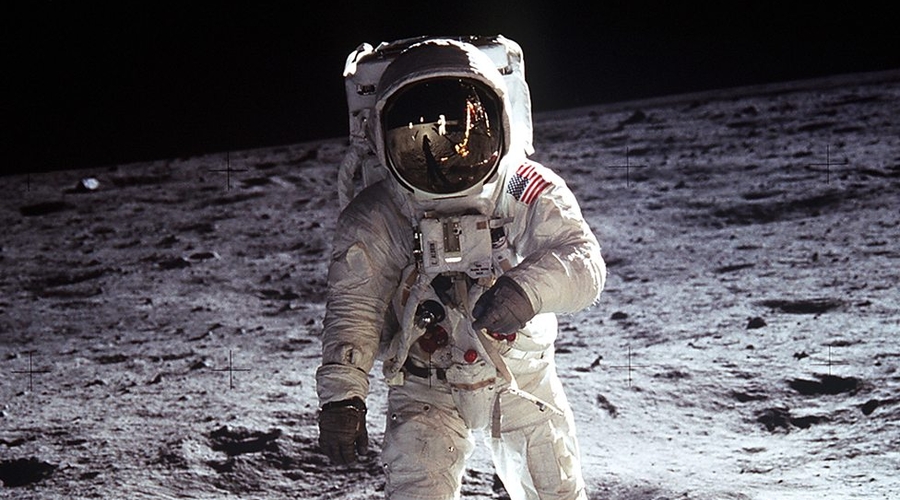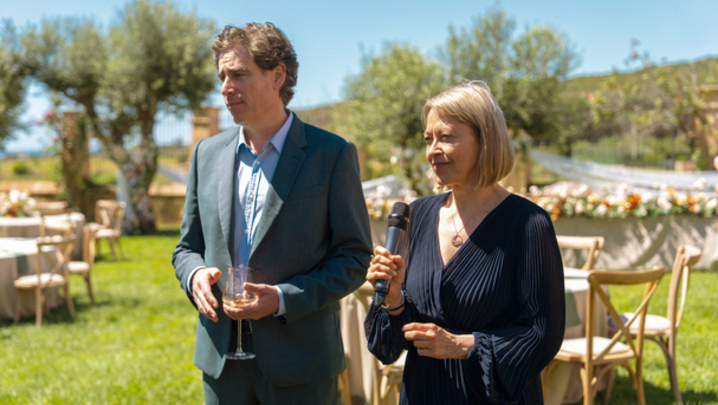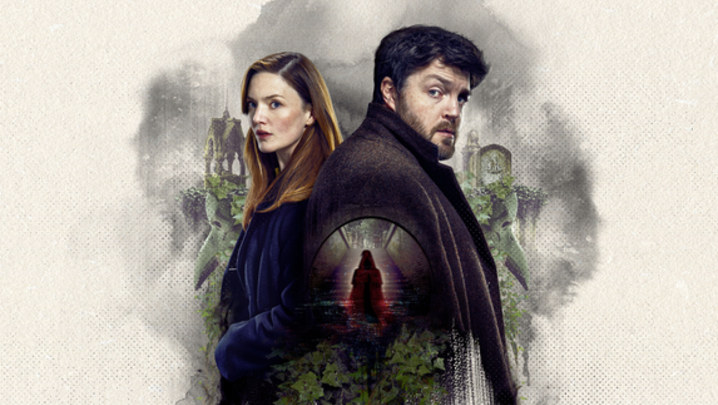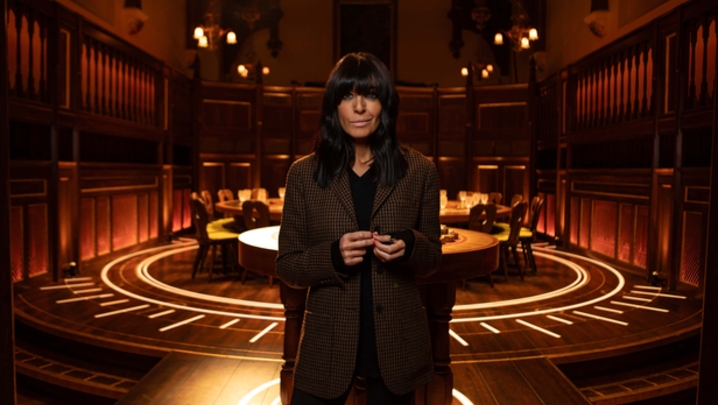Four ambitious new science programmes have been commissioned for BBC Two and Four for 2017.
The commissions will explore scientific mysteries, reveal new discoveries and show extraordinary footage in an exciting selection of science programming.
Programming includes Professor Brian Cox and Dara O Briain taking a look at space from a completely new perspective in Stargazing Live; astronaut Colonel Chris Hadfield putting 12 men and women through their paces in The Toughest Job in the Universe; Dr Alice Roberts and Ben Garrod investigating the mystery surrounding the extinction of the dinosaurs in Secrets of the Dinosaur Crater; and Dr Helen Czerski exploring the interesting science behind sound in Sound Waves.
Tom McDonald, Head of Commissioning, Natural History and Specialist Factual, said: “2016 has been a brilliant and award-winning year for Science at the BBC: from Brian Cox's landmark Forces Of Nature on BBC One through to clips from BBC Two's The Big Life Fix being viewed almost 40 million times online, our content has touched people's hearts and blown people's minds. Our new titles for 2017 reflect the range and ambition we have for the genre. From the milky way to a dinosaur crater; outer space to Lesley Garret's larynx, there's something for all our audiences in these new titles."
Stargazing Live
BBC Two
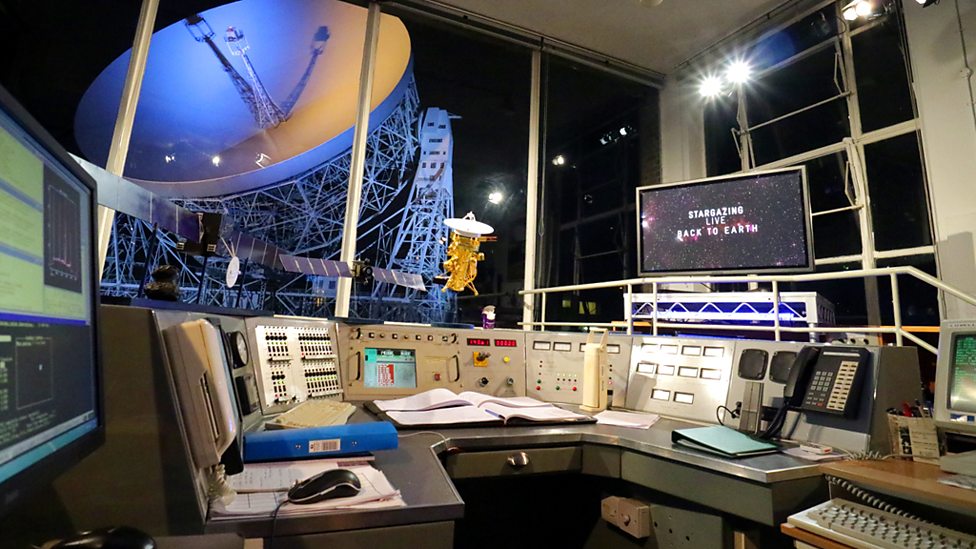
Professor Brian Cox and Dara O Briain are taken from London to the other side of the world for an astonishing stargazing experience in the Australian Outback.
The duo will spend three nights with more than 40 telescopes on a mountain in the heart of Australia, home to the Siding Spring Observatory, which delivers the world's best view of our galaxy.
Cox and O Briain will share stories of Aboriginal astronomy, the meteorite bounty-hunters searching for space rocks in the Australian bush and debate the threat of the black hole that could one day consume our galaxy, all under the spectacular view of the Milky Way at its most revealing time in March.
The Australian outback is the perfect setting for discussions of the universe, earth-like planets and why everything looks upside down, down under.
The Toughest Job in the Universe
BBC Two
The Toughest Job in the Universe will delve into the gruelling astronaut recruitment process for the European Space Agency.
There have only ever been 550 astronauts who have made it into space, and in the latest round of 8000 applicants, only six made it onto the programme.
Twelve men and women from all over the UK will be put to the ultimate test as they take on elements of the most extreme selection process, based on the space agencies' application criteria, over an intense six week period.
If they pass the military standard medical, they will undertake demanding tasks such as a zero-G flight on a specially adapted aircraft and a mission in an underwater lab used in NASA training.
Chris Hadfield, former astronaut and Commander of the International Space Station, will lead the selection programme to separate the extraordinary candidates from the ordinary.
He will share his expert knowledge and lessons he learnt during his three space missions and 166 days in space. Hadfield and his team of expert assessors will be searching for candidates with self-discipline, the ability to learn complex skills and the ability to make life and death decisions in extreme circumstances.
Colonel Hadfield said: “To be selected as an astronaut is intensely demanding and competitive. I’m looking forward to meeting these 12 top finalists, the very best of all who apply, and testing and getting to know them to see who has what it truly takes.”
Secrets of the Dinosaur Crater
BBC Two

Secrets of the Dinosaur Crater explores one of the biggest natural phenomenons in history: the disappearance of the dinosaurs.
This one-off documentary follows Dr Alice Roberts and Ben Garrod on an international scientific expedition that has been 20 years in the making.
Garrod joins an international group of scientists on a unique rig in the Gulf of Mexico as they drill 1500 metres into the sea to the Chicxulub crater, which was created by a huge asteroid that is thought to have wiped out 75 per cent of all life on Earth.
Roberts travels through South America on horseback over Patagonia's vast plains to a remote location that is home to large amounts of dinosaur fossils in an attempt discover more about the events that killed off the dinosaurs from Earth 66 million years ago.
The results of their journeys reveal dramatic new evidence that presents a vivid picture of the 24 hours surrounding the asteroid impact, what difference it would have made if the impact had struck the Earth a moment or two later, and answer some of the great mysteries about what killed dinosaurs across the planet.
Sound Waves
BBC Four
Dr Helen Czerski investigates the intricate and surprising science behind sound, what we can hear and what we can't.
Czerski explores the most extreme acoustics on earth from an underground cavern, to how sound is being used in space exploration and in underwater archeology.
The series will show unique imagery of world famous opera singer Lesley Garrett CBE's larynx as she sings I Dreamed a Dream as well as exclusive access to Big Ben for the first ever attempt to laser map the bells and why they produce their harmonious tone.
Sound Waves will also take Dr Helen Czerski on a trip to Stromboli, the most active volcano in Europe, to experience the extraordinary sounds produced by the volcano that are beyond the range of human hearing.

